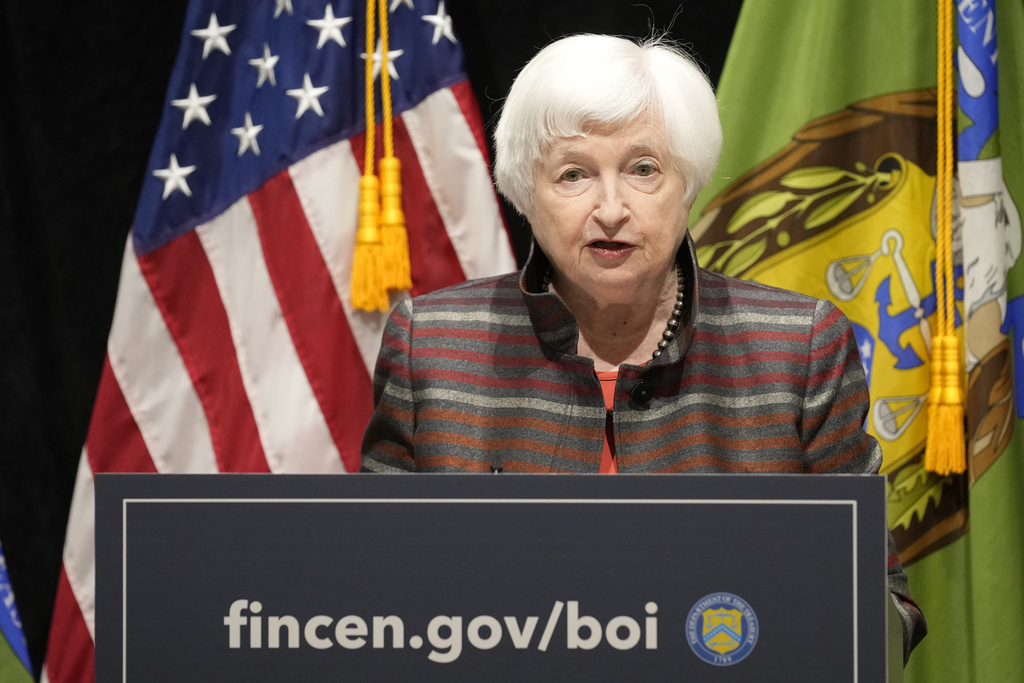There is greater divergence than ever among G7 finance ministers concerning a proposal to confiscate frozen Russian assets, according to Hungarian news outlet Mandiner.
Although U.S. Treasury Secretary Janet Yellen indicated weeks ago that a way had been found to permanently confiscate the funds seized under sanctions imposed by the West, international legal experts and the world’s leading financial gurus have expressed their concern over the plan with many issuing statements warning of the negative consequences of such an unprecedented aggressive decision.
Yellen is playing a no-stakes game in this case. Only a tiny fraction of Russia’s frozen assets are invested in the U.S., while the really big player is the Belgian fund manager Euroclear, which is sitting on €200 billion of Russian central bank money.
For a while, the firm looked favorably on the idea of using some of the Moscow money. However, after Yellen’s prodding, it has now said flatly that it is in favor of using interest on the assets to support Ukraine, but warns against anyone tampering with the funds.
Euroclear’s stance is not only because it is completely contrary to international and customary law, but also because there will no longer be any country in the world that will entrust the management of its sovereign wealth to it. The risk is enormous according to Christine Lagarde as well. The president of the European Central Bank keeps sounding the alarm at the idea of confiscation. Such a move, she says, could completely undermine financial confidence in Europe and the euro, leading to a depreciation of the currency.
After the latest G7 finance ministers’ meeting, French Finance Minister Bruno Le Maire openly denied the rumors of a joint agreement, while also rejecting Yellen’s idea. According to him, it is not legal to confiscate $300 billion of Russian assets and send them to Ukraine. He said they reject the U.S. position and are convinced that the U.S. proposal cannot be supported by any form of international law, without which France will not give its blessing to any asset confiscation.
He added that it is not only the G7 that needs an agreement but also the G20 where China and Russia also sit at the table. Le Maire would like to see a broad international consensus on this, even if he agrees with the idea that Russian money should be used to rebuild Ukraine.
The French finance minister was supported by his German counterpart, Christian Lindner, who says Le Maire is absolutely right and the original idea seems to be the most feasible, i.e., to use the interest made off of the Russian money; however small the amount thus obtained may seem, it is the only realistic, legally secure, and feasible idea.
Unsurprisingly, Washington does not see it that way. Although the idea of a 100 percent tax on interest earnings is a good one, Yellen insists on spending the entire amount of the Russian central bank’s money. The Kremlin has repeatedly warned the West that if it dares to touch its money (the Russians use the word “rob”), it will not only take all countries to court, but will also get its hands on Western assets, which would more or less cover its losses.
Canada and Japan have also spoken out on the matter. The former, as always, agrees with Washington, while the latter prefers the French and German positions. Japan has thus urged further brainstorming in line with international law and has cautiously voted in favor of sending the interest tax to Ukraine.





